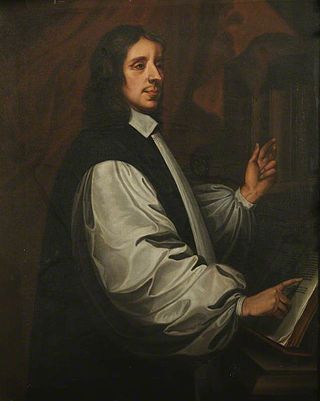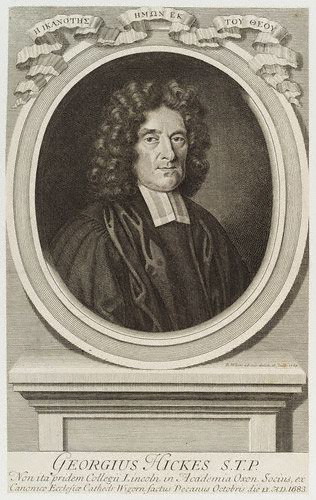Related Research Articles

John Fell was an English churchman and influential academic. He served as Dean of Christ Church, Oxford, and later concomitantly as Bishop of Oxford.

Richard Allestree or Allestry was an English Royalist churchman and provost of Eton College from 1665.

George Hickes was an English divine and scholar.
Thomas Bayly Howell FRS was an English lawyer and writer who edited and lent his name to Howell's State Trials.
Robert Sharrock (1630–1684) was an English churchman and botanist. He is now known for The History of the Propagation and Improvement of Vegetables by the Concurrence of Art and Nature (1660), for philosophical work directed against Thomas Hobbes, and as an associate of Robert Boyle
Charles Hickman, an Anglican divine in the Church of Ireland, was Bishop of Derry from 1703 to 1713.

William Jenkyn (1613–1685) was an English clergyman, imprisoned during the Interregnum for his part in the 'Presbyterian plot' of Christopher Love, ejected minister in 1662, and imprisoned at the end of his life for nonconformity.
Thomas Manningham (1651?-1722) was an English churchman, bishop of Chichester from 1709.
Robert Huntington (1637–1701) was an English churchman, orientalist and manuscript collector. He was Provost of Trinity College Dublin and Bishop of Raphoe.
Evan Seys (1604–1685) was an eminent lawyer of his day who rose to national office under Oliver Cromwell as Attorney General, and served as a member of parliament after the Restoration. From c.1649 until his death he was involved in the politics of his native Glamorgan, and of Gloucestershire. He was a committed and active Protestant and an antiquarian scholar.
Clement Barksdale was a prolific English religious author, polymath and Anglican priest. He lost his London parish in the English Civil War, but gained Gloucestershire livings at the Restoration and taught at a private school.
Barnabas Long or Longe was Archdeacon of Cleveland from 1683 to 1685.

William Bird or Byrd (1624–c.1691) was a 17th century English sculptor. He seems to have served Oxford University for many decades as their official mason. His most notable work is the covered arch linking the two sections of New College, Oxford, raised over the centre of the carriageway to allow laden haycarts to pass.
References
 This article incorporates text from a publication now in the public domain : "Marshall, Thomas (1621-1685)". Dictionary of National Biography . London: Smith, Elder & Co. 1885–1900.
This article incorporates text from a publication now in the public domain : "Marshall, Thomas (1621-1685)". Dictionary of National Biography . London: Smith, Elder & Co. 1885–1900.
